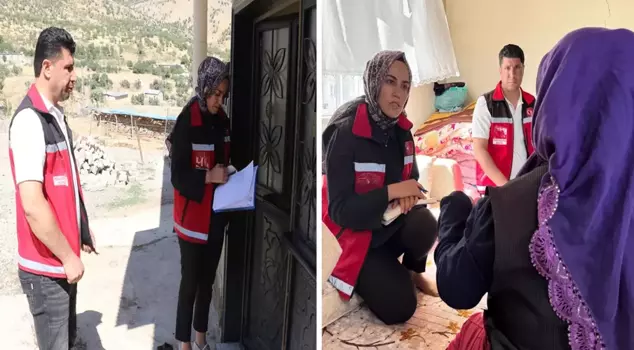
19.09.2025 00:40
In Siirt, a woman who called 112 unnecessarily about 3,000 times in six months was convinced to stop after receiving administrative fines and psychosocial support. Thanks to inter-institutional cooperation, the call center's congestion came to an end.
```html
The 112 Emergency Call Center in Siirt, which responds to an average of 1,000 calls a day with 150 personnel working in shifts, is seeking solutions to prevent unnecessary calls through administrative sanctions as well as inter-institutional cooperation.
CALLED UNNECESSARILY ABOUT 3,000 TIMES IN 6 MONTHS
The 112 Emergency Call Center, which combines emergency calls from police, health, gendarmerie, fire department, forestry, and AFAD units, imposed administrative fines twice on 28-year-old Z.I., who made unnecessary calls approximately 3,000 times in 6 months. However, as the calls continued, a coordinated effort was initiated with the Provincial Directorate of Family and Social Services.
"STOPPED CALLING AFTER PERSUASION EFFORTS"
In this context, psychosocial support teams affiliated with the directorate conducted a meeting with the woman making unnecessary calls in her village. The woman was informed about the operation and vital importance of the 112 Emergency Call Center. After the information and persuasion efforts, the woman stopped making unnecessary calls.
"WE HAD TO IMPOSE A FINE DUE TO REGULATIONS"
112 Emergency Call Center Director Sami Bozkurt stated that the center should not be occupied with unnecessary calls and false reports in order to intervene in emergencies. Bozkurt explained that they take every call seriously and emphasized that they race against time to prevent loss of life and property.
Stating that they operate on a 24/7 basis to quickly reach citizens, Bozkurt said, "However, in addition to this, we are fighting against unnecessary calls. In this context, we had a citizen who called us approximately 3,000 times in the last 6 months. We had to impose a fine on the citizen due to regulations, but as the calls continued, we wanted to seek a solution-oriented approach instead of imposing fines."
Bozkurt reported that they reached out to the woman's relatives and assessed that her mental health might not be in good condition, and they requested professional support from the Provincial Directorate of Family and Social Services.
"WE ARE AN INSTITUTION RACING AGAINST TIME"
Bozkurt noted: "The team from the Provincial Directorate of Family and Social Services provided support to the woman they visited. Then the calls stopped. We are pleased to observe that there have been no calls in the last week. We believe that we have reaped the fruits of our efforts in this way. We especially ask our citizens. We are an institution racing against time. We are only trying to respond to emergency calls. Therefore, please do not call the center unnecessarily and occupy it. We believe that preventing unnecessary calls through fines alone is not sufficient, so we emphasize inter-institutional cooperation and request support from other institutions. We see that the results of a much more effective and solution-oriented approach are quite good."
"WE ANSWERED EVEN THOUGH WE KNEW IT WAS THE SAME NUMBER"
Sümeyye Doğan, a staff member at the center, stated that they evaluate every call as an "emergency call," but sometimes they are also occupied with unnecessary calls. She mentioned that they memorized the number of the person who occupied the center about 3,000 times in 6 months, yet they answered the calls due to the possibility of an emergency. Doğan expressed that it made them happy to persuade the person. She stated that they have not received any calls from the individual in question for a week, saying, "Even though we knew it was the same number, we answered. If we didn't answer, we would call back to find out if it was an emergency."
"SHE ADMITTED TO MAKING UNNECESSARY CALLS"
Psychologist Aycan Polat, who works at the Provincial Directorate of Family and Social Services, stated that they conducted one-on-one meetings with the woman making unnecessary calls and her family in the village upon request. Polat said: "As a result of individual meetings, we identified the social service model that our citizen's family needed on-site and made the necessary referrals. We had discussions with our citizen about not occupying the 112 Emergency Call Center unnecessarily. As a result of the meeting, she admitted that she was making unnecessary calls. She stated that she would not engage in such behavior again."
```